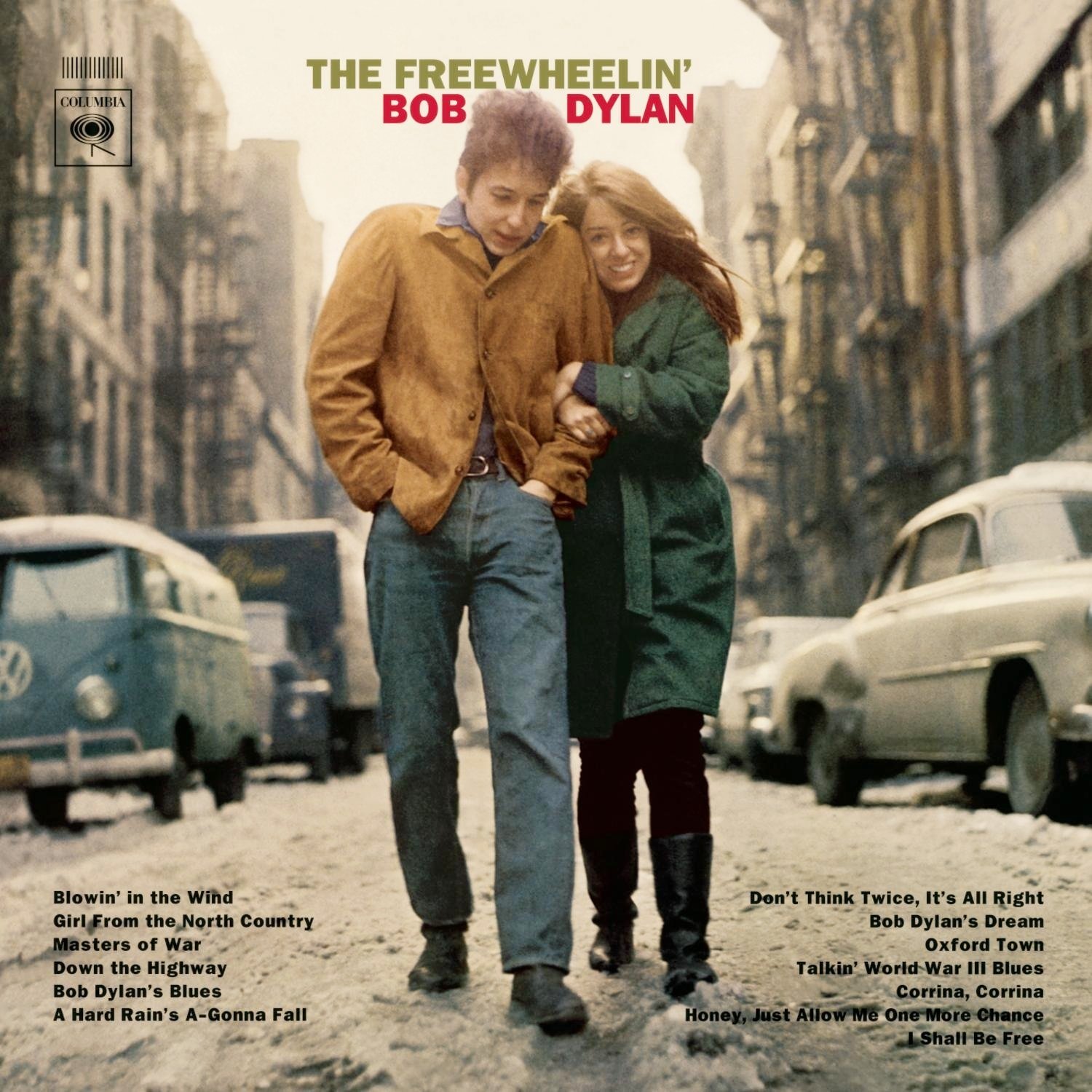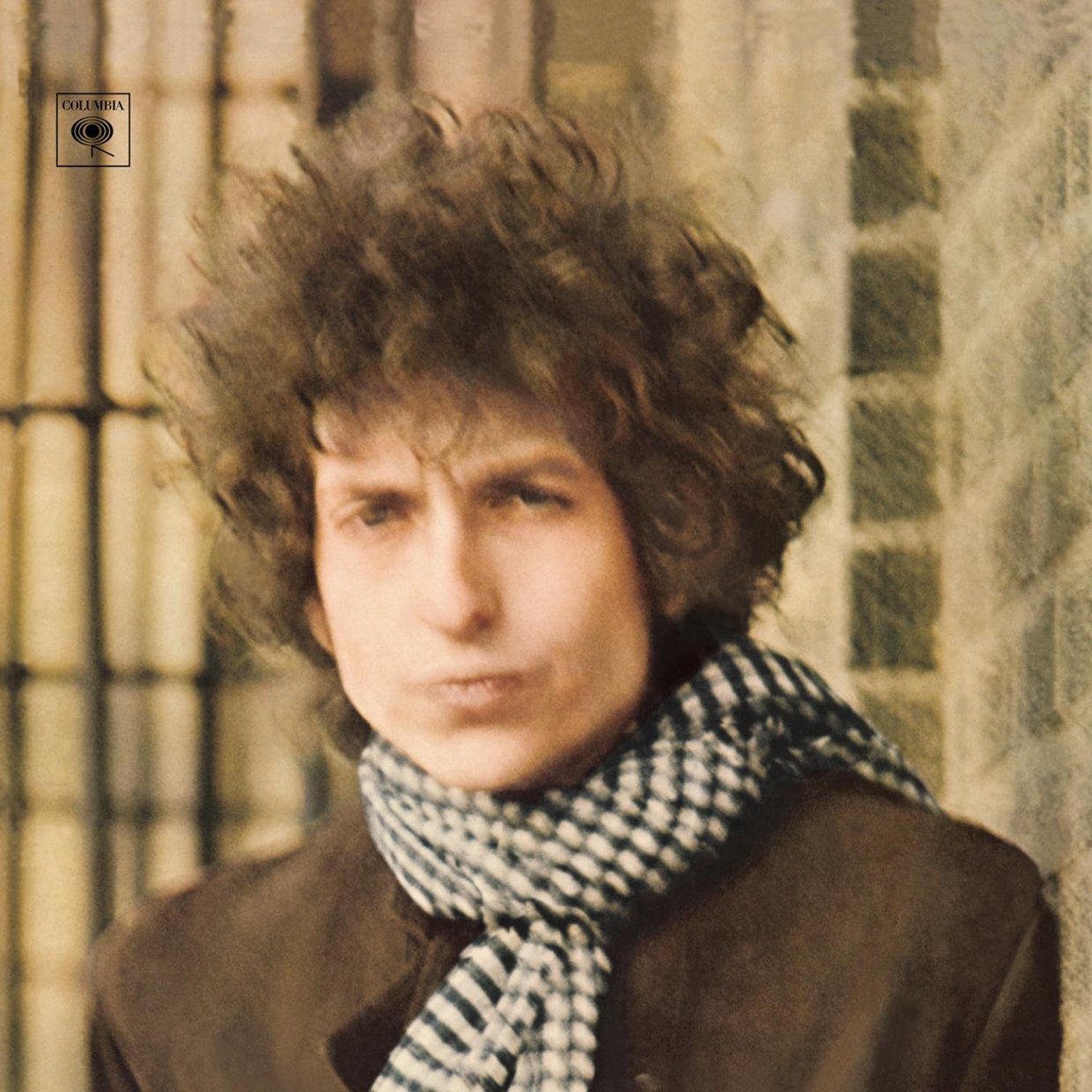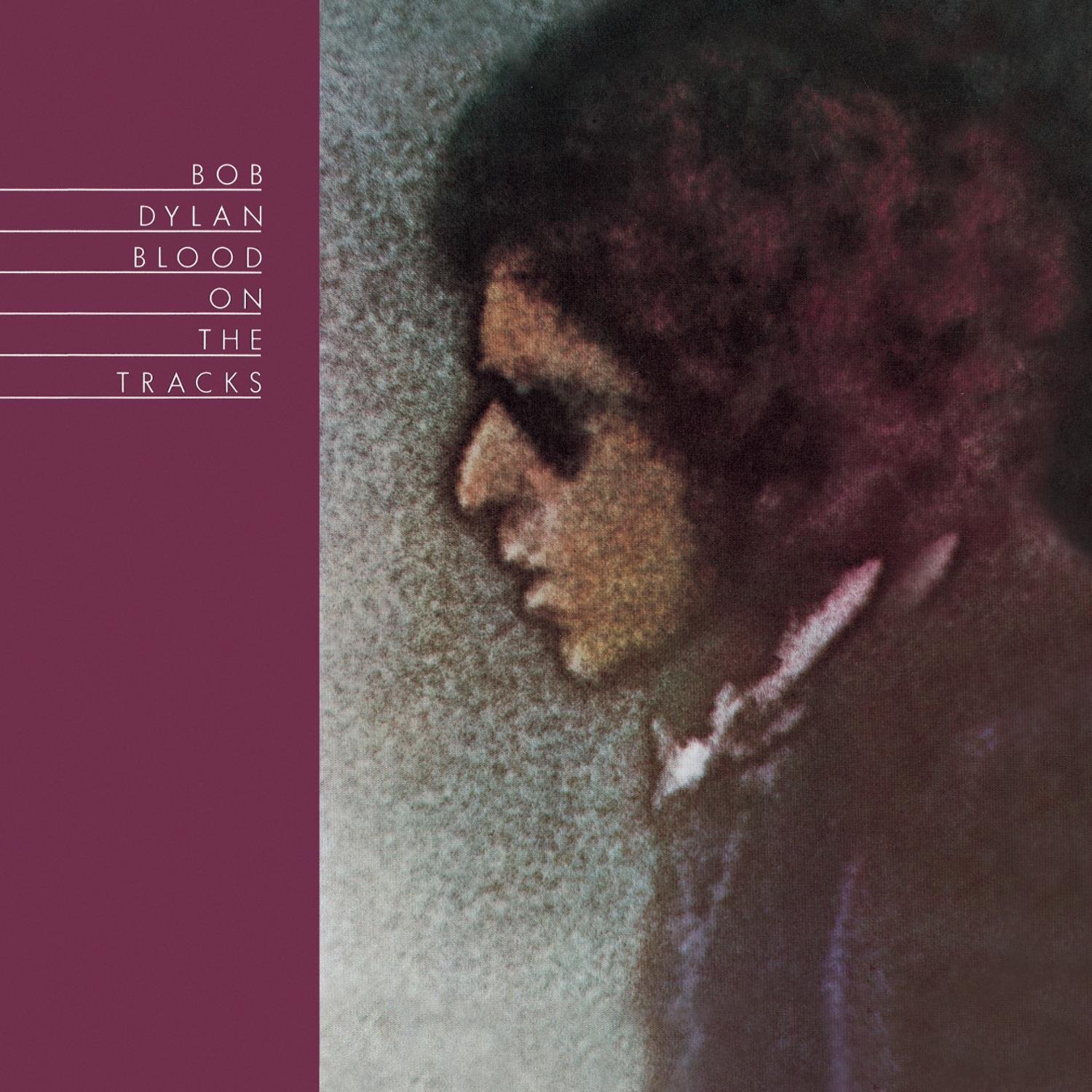Happy 60th Anniversary to Bob Dylan’s third studio album The Times They Are A-Changin’, originally released January 13, 1964.
Possibly one of Bob Dylan’s most overlooked records as a whole, The Times They Are A-Changin’ is his most overtly political. Released 60 years ago this week, the songs and ballads were timely then and the topics resonate in our climate today.
The Times They Are A-Changin’ takes Dylan’s political beliefs many steps further than The Freewheelin’ Bob Dylan, released the previous year. For The Times it’s plainly recorded: Dylan is on acoustic guitar, harmonica, and vocals. The only other personnel listed is his longtime producer Tom Wilson. This record has a stripped-down nature, which makes the stories feel close and the emotion raw.
The album cover matches the traditional sounds: a black and white portrait of a scowling Bob. The Times They Are A-Changin’ has no vanity. Dylan would grow into his own brand of narcissism later in the ‘60s, but he was still a folk hero in 1964 because of this LP. The Times They Are A-Changin’ tackles racism, poverty, and social changes: the America brand.
It goes without saying that this record opens with the title track, one of Dylan’s most famous songs covered by dozens of artists across genres in every decade since its release. No song is born popular. This one became so because of its content.
For me to discuss it here is to assume you’ve never heard it before, which is ridiculous. Most people in the English-speaking world have come across “The Times They Are A-Changin’” at one point or another. To call it an anthem of change is cliché, but it’s exactly that. It’s one of Dylan’s most deliberate moves as a songwriter. It matches the phrasing and pacing of others on the record reminiscent of Irish and Scottish ballads that build up one verse at a time. Only “The Times They Are A-Changin’” is chorus-heavy compared to the others. Consider it an American hymn written by one of America’s finest religious fanatics.
The Times They Are A-Changin’ is one of the few Dylan records full of songs written for and about other people. On the seven-minute “With God On Our Side” he dissects God’s role in everything from the genocide of Native Americans to World War II to Vietnam. “North Country Blues” is, simply, a song of tragedy. “Ballad of Hollis Brown” is a fictionalized song about a South Dakota farmer who murders his family and then kills himself because of poverty. There isn’t much sunshine here.
Listen to the Album:
“The Lonesome Death of Hattie Carroll” pays real tribute. Carroll was a 51-year-old black woman killed by rich, white 24-year-old William Zantzinger. It’s a monotone chronicle of Carroll’s life as a mother of ten and “Billy’s” initial booking for murder. Zantzinger’s connections to Maryland politics through his family’s tobacco farms helped him get a slap on the wrist and only spend six months in jail, the charge changed to assault. Truthfully, this story sounds like it could happen in 2024.
“Only A Pawn in Their Game” is about the assassination of civil rights activist Medgar Evers. It opens side two. Dylan’s lyrics suggest his murderer, the poor, white Byron De La Beckwith, was a pawn to rich white elites planning Evers’ murder. Beckwith was a Klansman and active on a “White Citizens Council” that opposed racial integration in southern schools. Today, Dylan’s lyrics here are worth a closer listen. Both Evers and Beckwith are pawns in Dylan’s eyes, but with 60 years of retrospect, it feels hard to believe and painful to sympathize with a White Supremacist. (Beckwith spent life in prison and died there at age 80.)
We should be celebrating Medgar Evers who was a champion of integration and protested to successfully integrate the University of Mississippi. He boycotted and protested across his home state of Mississippi, organizing for civil and voting rights in the early 1960s. The street I live on in Brooklyn shares a name with him, “Medgar Evers Way.” My apartment building is two avenues from CUNY Medgar Evers. Luckily his legend lives on. For some reason, Dylan didn’t name him in the title and I wonder if he still believes in both men’s innocence.
The songs on The Times They Are A-Changin’ are somber. Listening to the LP now provides a clear image of Dylan as a Folk Singer. Recorded a year before its release, by the time it came out Dylan was distancing himself from the image the LP created. It’s his earliest face: a fingerpicking everyman telling stories of love (“Boots of Spanish Leather”) and hate. What he chose to write about is why so many fell in love.
A lot of Dylan’s history surrounds this LP before it was even released. Just a month after it was recorded in 1963, Kennedy was assassinated in Dallas. Three weeks after that the Emergency Civil Liberties Committee awarded Dylan the Tom Paine award for his contributions to the civil rights movement. Dylan’s acceptance speech is a diatribe against the display of rich whites and capitalism he faced in that Washington, D.C. ballroom. Notably drunk, he told the crowd among many things that he “saw himself in Lee Harvey Oswald.” After a forced apology he retreated and, my theory is, never spoke openly and honestly again.
Two years later he was still getting booed. In 1965 he plugged in at Newport and nearly cut himself on the edge he created with Bringing It All Back Home (1965). Recorded and released by the time his electric show at Newport happened, the crowd was not ready. Expecting his infamous acoustic ballads from his previous records, including 1964’s Another Side of Bob Dylan (featuring “Chimes of Freedom,” “Ballad in Plain D,” and “It Ain’t Me Babe”), they were met with “Like A Rolling Stone,” and that’s that. Information (and sound) traveled a lot slower back then.
Enjoying this article? Click/tap on the album covers to explore more about Bob Dylan:
The Times They Are A-Changin’ is a rigid stance of a record. Listening to it now is all the more sobering. Our political landscape is much wider than it was 60 years ago. Now the lies are bigger and while the information is still free, it’s hard to know who to trust. These songs are an inspiring, genuine act of a Dylan long gone. When the Nobel committee awarded Dylan the prize for literature in 2017, I believe they were honoring him for this trilogy of records: The Freewheelin’ Bob Dylan, The Times They Are A-Changin’, and Another Side of Bob Dylan.
Fans started listening to what Dylan had to say because of these songs. Fame bought Bob freedom long ago but it’s the silence that bothers me the most. It’s the silence even as the Never Ending Tour approaches its fifth decade, where he doesn’t address the crowd between songs and mumbles through alternative versions of famous tracks. I wonder who he voted for and if he voted back in 2016 or more recently in 2020. As a fan who often loses her way, I know there are better people—and women!—to look to in times of dire hope. Now I know better than to look to Dylan, but it’s records like The Times They Are A-Changin’ that make me glance toward him in the first place.
LISTEN:
Editor's note: this anniversary tribute was originally published in 2019 and has since been edited for accuracy and timeliness.





